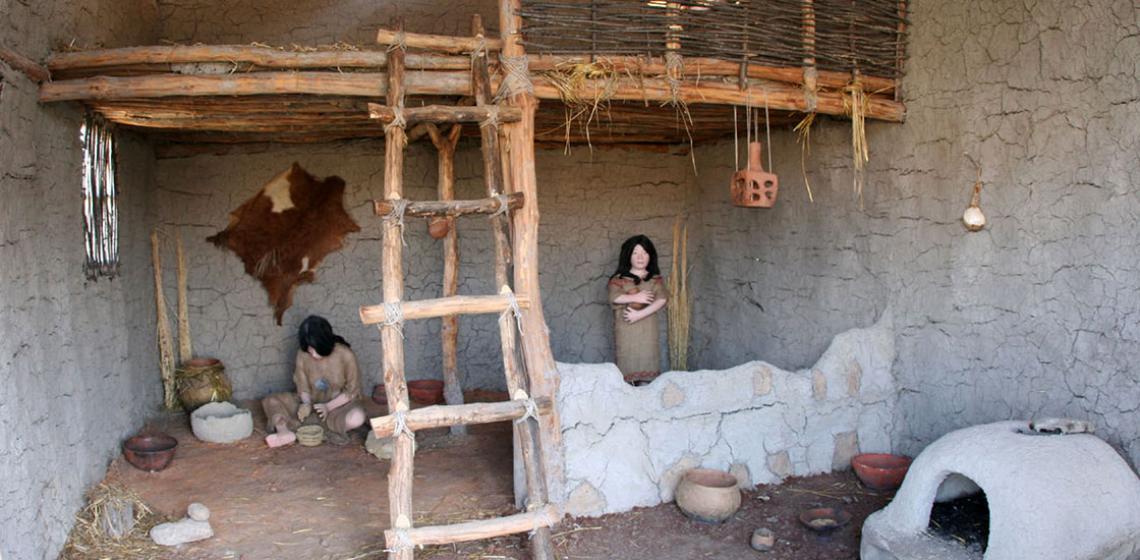Tumba Madzari (MK)

In the early 1960s, a motorway was constructed near Skopje in the Municipality of Gazi Baba. Here, the most significant Neolithic site was discovered of the Skopje valley. Main excavations were executed by the Museum of North Macedonia at the end of the 1970s and in the 1980s with beautiful pottery and other Neolithic artefacts coming to light.
In North Macedonia and in Skopje in particular, there are just a few well known and appreciated archaeological sites. The Neolithic settlement Tumba Madzari is from its discovery appreciated by fellow archaeologists for the artistic and aesthetic values of its material and spiritual culture. Archaeologists of the Museum of North Macedonia therefore, joined with the former mayor of Gazi Baba. Mr. Trajanovski, decided that the archaeological site should become publicly known. Mrs Kanzurova MA & Dr Zdravkovski are authors of the project. By the mid 2000’s it was high time to create a site themed with the Neolithic of Gazi Baba to be used for various purposes including education, science and tourism. The initiative for reconstruction of the archaeological open-air museum - the Neolithic village at the site of Tumba Madzari - has more than one objective. It aims at revitalisation of the site, as well as developing within the general public the sense of appreciation and concern for the earliest cultural achievements of our ancestors.
From the beginning the Neolithic village has financial support from Ministry of culture of Republic of North Macedonia and Municipality of Gazi Baba in Skopje (the territory where is located the site Tumba Madzari). The site is under the umbrella of the National Institute of the Museum of North Macedonia. The Museum, founded in 1924, is one of the oldest museums in the country. It is located in Old City Bazaar with 10.000 m2.This is a national institute with complex character. It is organized with several departments: Archaeology; Ethnology; History, History of Art; Anthropology; Preservation and finally Education. The Museum of North Macedonia owns and manages several memorial houses and archaeological sites. One of the archaeological sites is the Neolithic site Tumba Madzari which includes the archaeological open-air museum.
In the first phase (2008) of the archaeological open-air museum two houses were constructed in the traditional mode of construction typical for Neolithic period. In the second phase (2009) depending on the budget two more houses were built. The project is continued in the following period (2010), The idea is to build one more Neolithic house and a museum shop for archaeological replica’s. The project is still in the start up phase.
In the reconstruction of Neolithic houses at Tumba Madzari three relevant sources have been used: archaeological finds remains on the site Tumba Madzari, the Neolithic clay alters-model houses from cultural groups of the territory of the Republic of North Macedonia, as well as present day examples of houses in villages as evidence for the construction tradition having been maintained for a very long time, practically for several millennia. The archaeological open-air museum (Tumba Madzari) is a new form of museum unknown for most of the North-Macedonian cultural population and much work needs to be done regarding public presentation (website; catalogue, educational presentation and meetings with tourist agencies et cetera).
Archaeologists are involved in all aspects of the museum work, planning, tour guides, construction, public presentations, funding applications et cetera. 2009, two small experiments were made with baking a pottery in the open-air and in a pit and one small test with growing crops. Plans to make linen are on the way of execution.
